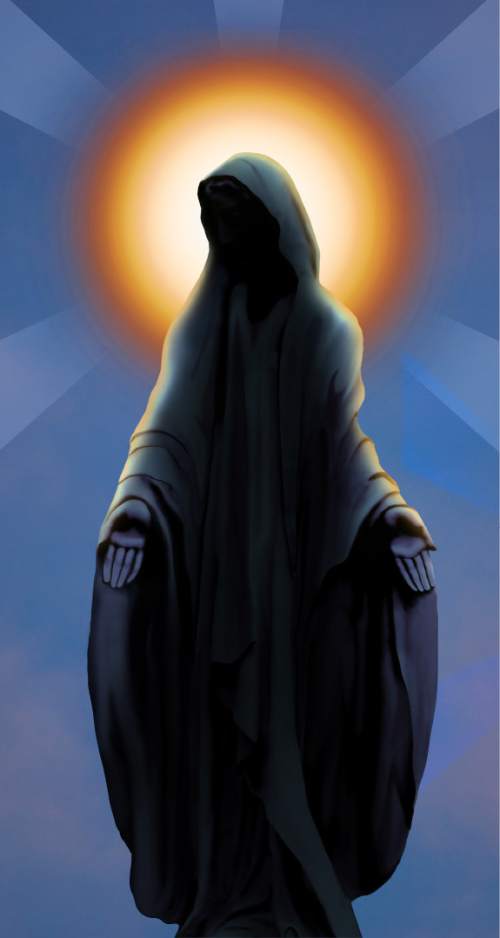This is an archived article that was published on sltrib.com in 2015, and information in the article may be outdated. It is provided only for personal research purposes and may not be reprinted.
Now that the LDS Church has publicly and emphatically affirmed its belief in a Heavenly Mother, some feminists believe it's time to acknowledge her in another venue: the theme for the faith's Young Women.
Every Sunday, Mormon girls, ages 12 to 17, stand and recite a lengthy statement about their goals and purposes.
They promise to "stand as witnesses of God at all times and in all things and in all places," to exemplify values such as faith, knowledge and integrity. Doing this, the theme says, will prepare them to "strengthen home and family, make and keep sacred covenants ... and to enjoy the blessings of exaltation."
The theme begins, however, with the LDS girls repeating, "We are daughters of our Heavenly Father, who loves us, and we love him."
That is ironic, writes Kayla B. Bach in the fall issue of SquareTwo, an online LDS magazine, because "it fails to mention the person who has already fulfilled this plan and has achieved the female version of that exalted state, which is, of course, our Heavenly Mother."
She wonders why "only one parent was being highlighted in a sentence that clearly focuses on familial bonds — especially considering that the people reciting it happen to be female."
It is time, Bach believes, to change the line to read: "We are daughters of our Heavenly Parents ... "
That won't solve all the "unanswered questions" about the Divine Mother, she writes, but "we do know she exists, and we know she loves her children."
If the Young Women organization was created "to train the future grown women of the church," Bach adds, "proclaiming this knowledge weekly will prove to be extremely beneficial as each girl is imbued with an awareness of her destiny that will last far beyond her 18th birthday."
Commenters on the piece say such a verbal change would go a long way toward gender equity in The Church of Jesus Christ of Latter-day Saints.
It is, one commenter argues, crucial.
"I don't see any way that we can confront the challenges facing the family in today's world," writes Heather B., "unless we are willing to bring our Heavenly Mother out of the shadows and into the light of our official teaching and discourse."
Top Mormon authorities opened that door with October's release of an essay stating that all humans are "beloved spirit children of heavenly parents, a Heavenly Father and a Heavenly Mother" and that "the doctrine of a Heavenly Mother is a cherished and distinctive belief among Latter-day Saints."
Peggy Fletcher Stack



